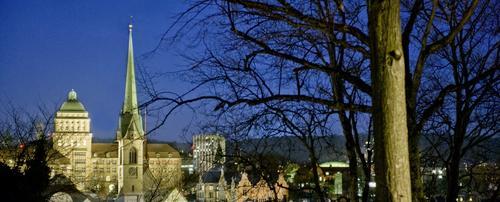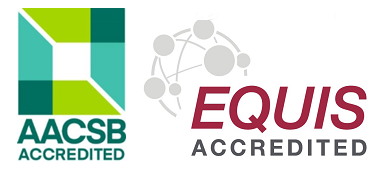About

Table of contents
Faculty of Business, Economics and Informatics – At the top of its field
The Faculty of Business, Economics and Informatics at the University of Zurich is the leading faculty in Switzerland and among the best in Europe. Its research performance achieves a high level of international recognition, and it attracts scholars and students from all over the world. The Faculty, which comprises of four Departments in Business, Economics, Banking and Finance as well as Informatics, possesses promising research conditions and puts great emphasis on encouraging young talent. The Faculty’s focus is on empirical and theoretical research, as well as on teaching competence in all disciplines of business and economics.
More information about the Faculty members of the Department of Business Administration only can be found here or here.
AACSB Accreditation
AACSB is a global, nonprofit membership organization of educational institutions, businesses, and other entities devoted to the advancement of management education. It is the largest American accreditation institution.
EQUIS Accreditation
The Faculty of Business, Economics and Informatics of the University of Zurich has obtained the EQUIS accreditation, the European Quality Improvement System, based in Brussels, Belgium. Due to the institutional type of the accreditation, all affiliated programs of the faculty have been accredited.
The EQUIS accreditation and the recently published top results in Business research in the German Handelsblatt and the top results in Economics research for many consecutive years, point out that the Faculty of Business, Economics and Informatics of the University of Zurich belongs to the best and state-of-the-art faculties in Europe.
We are convinced that with the EQUIS accreditation, not only the competitiveness but also the international visibility of the faculty and its Study Programs will be substantially increased. Last but not least, this label promotes the international student exchange with other accredited institutions.
University of Zurich – Switzerland’s largest university
The University of Zurich was founded in 1833, though its origins stretch back as far as 1525, to the days of protestant reformer Ulrich Zwingli. Today, the University enjoys an international reputation as a place of excellence in education and research. Two thousand faculty members in 140 specialized institutes provide the broadest range of subjects and courses available at any Swiss higher education institution. With 24,000 students and 1,900 graduates every year, Zurich is also Switzerland’s largest university. Zurich’s international reputation is supported by several independent and international rankings, where it has always been named among Europe’s best universities (e.g. rank 12 in the Shanghai ranking of 2008). The University of Zurich also proudly looks back to its long list of twelve Nobel Prize winners, starting with Wilhelm Conrad Röntgen in 1901 and continuing up to its most recent winner, Rolf M. Zinkernagel in 1996.
The University’s researchers and its students benefit from the infrastructure that Zurich provides as a centre of education and research. Apart from its own library resources, the University offers its members access to worldwide electronic archive collections, libraries and the onsite facilities of the Federal Institute of Technology (ETH), as well as to the city’s library institutions.
The City of Zurich – Quality of life in a vibrant metropolis
More than a million people live in Zurich’s metropolitan area spread out around the northern end of Lake Zurich. The city offers a high level of quality of life (Zurich has been, for seven years in a row, the winner of the Worldwide Quality of Living survey, conducted by Mercer). Zurich is the hub of an efficient and regular rail network with national and international connections. Zurich International Airport is within ten minutes' reach of the city center and offers scheduled flights to a wide range of European and intercontinental destinations. Renowned cultural institutions such as Zurich’s Opera, Theatre, Concert Hall and Museum of Fine Arts form the basis for the city’s fine reputation as a major cultural center. Smaller theatres, music venues, jazz clubs, numerous museums, over 100 art galleries and alternative events enrich the city’s lively cultural scene. Most of Zurich’s residents speak several languages, in particular English, French or Italian, in addition to German. Over 1700 restaurants vie with each other to present the city’s diverse gastronomical offerings. Numerous nature, recreation and leisure areas are easily and quickly accessible from anywhere within the city of Zurich. They offer opportunities for hiking, jogging, riding, rowing, sailing, surfing, cycling, for tennis, squash and golf or simply for relaxing amid the greenery or by the lakeside. The nearby hills invite ramblers to undertake excursions offering views of the Alps. Finally, attractive regions for winter and mountain sports are also within easy reach. The universities’ academic sports association (ASVZ) offers students and staff of the two universities the infrastructure, support and guidance required for a balanced lifestyle complemented by sports activities.
